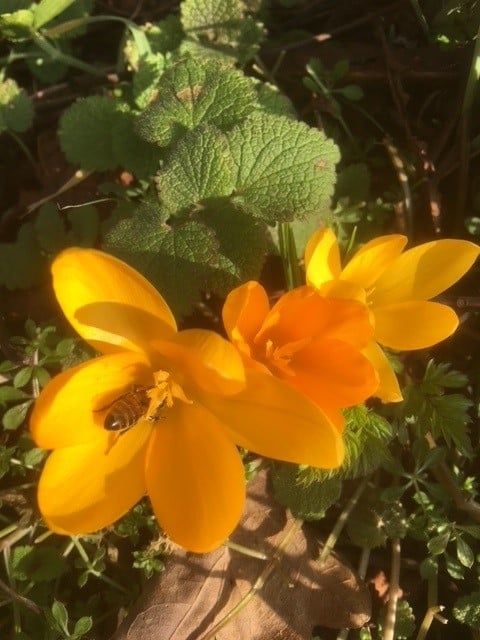The Apiary in February
Photo: Beautiful flowers but no insects working them.
Well not a month with much activity outside the hives, as it has been too cold or wet most of the time as we struggle to escape the grip of winter.
But inside the hives the Queens will have increased their laying rate, trying to replace those older bees who are dying off due to their age or getting caught out by the chill weather as they try to forage for water and pollen.
This is the time of year when the numbers of bees in your colonies drop to their lowest numbers due to the natural processes at play.
All we can do at this time is ensure they are dry, well fed and protected against predators.
If in any doubt about food levels place a lump of Fondant above the cluster or over the nearest crown board hole so they will not need to move far from their cluster to feed.
As they increase the amount of brood they are keeping warm, they subsequently will increase the amount of their food/ supplies they consume.
On a few days this month and particularly on 19th, the temperatures rose sufficiently for the workers to get out and work the Snowdrops and the Crocus but since then it has been too cold and wet for them to get out and forage.

This is Beekeeping for you as there are plenty of spring flowers about but it is just too cold for any insects to fly let alone gather nectar and pollen. In previous seasons weather has been much kinder earlier.

Equipment sales are still about. Have you visited the sales on-line or at one of the spring shows locally?

The next big show is the BBKA Spring Convention at Harper Adams University in Shropshire between 21/23 April, after that equipment prices will rise as we will hopefully be into the active season.
The long term weather forecast for March looks rather cold and wet and if that is how it turns out, leave your colonies alone they will cope as long as they have plenty of food which they can access.


